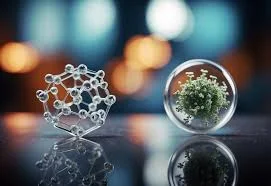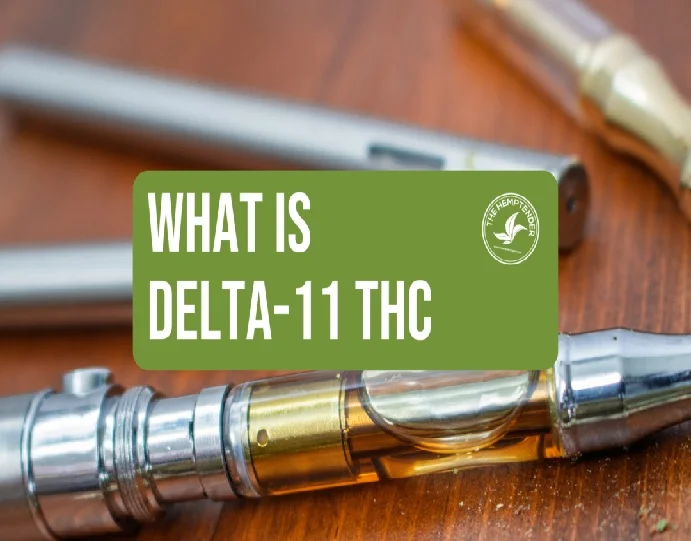Since the passing of the 2018 Farm Bill, the cannabis market has seen an explosion of new hemp-derived cannabinoids, offering alternatives to traditional THC products. Among these, Delta 11 THC is one of the latest to capture attention. Like Delta 9 THC, the psychoactive component of marijuana, Delta 11 is starting to make waves as a potential new option for those seeking similar effects. But what exactly is Delta 11, and how does it differ from other THC variants? Let’s explore all the information you require.
What Is Delta 11 THC?
Delta 11 THC (Delta-11-tetrahydrocannabinol or Δ11-THC) is a minor cannabinoid, meaning it’s naturally found in cannabis but in very small amounts. Structurally, it is an isomer of Delta 9 THC, which means it has the same chemical formula but a different arrangement of atoms. This slight difference can lead to a variety of effects.
Like its cousins, Delta 8 and Delta 10, Delta 11 is gaining popularity as a new hemp-derived cannabinoid option. However, what sets it apart is its relative obscurity—there’s very little scientific research on Delta 11, making it one of the least studied THC variants. Most of what we know comes from user experiences rather than detailed studies.

How Is Delta 11 THC Made?
While Delta 11 naturally occurs in cannabis plants, it’s typically found in such small quantities that extracting it directly from the plant isn’t commercially viable. Instead, Delta 11 THC is often synthesized from CBD (cannabidiol) through a process that involves heat or chemical catalysts. This method allows for the large-scale production of Delta 11, making it available in forms like Delta 11 carts and gummies.
Delta 11 vs. 11-Hydroxy-THC: Clearing the Confusion
One common misconception is that Delta 11 THC and 11-hydroxy-THC are the same. While both are cannabinoids, they are entirely different substances. 11-hydroxy-THC is a metabolite of THC that forms in your body after consuming Delta 9 THC, particularly when you eat edibles. Delta 11, on the other hand, is its own distinct compound and is not a metabolite.
Some articles may mistakenly reference a 1973 study on 11-hydroxy-THC as though it applies to Delta 11, but this is incorrect. They are not the same thing.

What Are the Effects of Delta 11 THC?
Because there is so little scientific research on Delta-11 THC, most of what we know comes from anecdotal reports. Users have described the effects of Delta 11 as psychoactive, similar to those of Delta 9 THC, the primary psychoactive compound in cannabis. Delta 11 interacts with the body’s endocannabinoid system, particularly the CB1 receptors, to produce a high.
That said, the intensity of the high is still debated. Some vendors claim that Delta 11 is up to three times stronger than Delta 9 THC, but there’s no scientific evidence to back this up. This claim likely arises from confusion with the potent metabolite 11-hydroxy-THC, not Delta 11 itself. For now, it’s safe to say Delta 11 produces psychoactive effects, but more research is needed to determine its exact potency compared to other THC variants.
How Is Delta-11 Different from Delta 8 and Delta 9?
Delta 9 THC is the most well-known and widely used cannabinoid for recreational purposes, offering a potent psychoactive experience. However, it remains federally illegal in the United States, though some states have legalized its use.
Delta 8 THC, on the other hand, is derived from hemp and is legally available in many states. It produces a milder high than Delta 9, making it a popular alternative. Delta-11 THC falls somewhere in between—its effects are still under scrutiny, but users claim it offers a unique experience, potentially stronger than Delta 8 but less well understood than Delta 9.
How Does Delta 11 THC Show Up on Drug Tests?
As with any THC variant, Delta-11 THC may show up on drug tests. Most standard drug tests don’t differentiate between various types of THC. Instead, they detect THC metabolites like THC-COOH, which your body produces after metabolizing cannabinoids.
Since Delta 11 THC is chemically similar to Delta 9, it’s highly likely that your body converts it into THC-COOH as well. This means that even though Delta 11 comes from federally legal hemp, it can still result in a positive drug test, just like Delta 8 THC or other THC variants.
Is Delta 11 THC Legal?
Thanks to the 2018 Farm Bill, Delta-11 THC is federally legal as long as it’s derived from hemp and contains less than 0.3% Delta 9 THC. However, individual states may have their own laws regarding hemp-derived products, and some states have already started banning or restricting the sale of certain cannabinoids like Delta 8 THC. There is no doubt that Delta 11 may have comparable legal issues along the road.
Before purchasing or using Delta 11 THC, it’s a good idea to check your local laws to ensure it’s legal in your state.

Is Delta 11 THC Safe?
Since research on Delta-11 THC is still limited, it’s hard to say definitively whether it’s safe. However, it doesn’t carry the same risks as some other cannabinoids, like THC-O, which has been found to be harmful when vaped or smoked. So far, there’s no indication that Delta 11 is any less safe than other hemp-derived cannabinoids, but until more studies are conducted, caution is advised.
As always, it’s important to purchase Delta 11 products from reputable retailers that provide transparent lab testing. Avoid products that don’t come with testing information, as they could contain harmful additives or illegal levels of Delta 9 THC.
Will Delta 11 THC Become Popular?
Given the growing interest in alternative cannabinoids like Delta 8 and HHC, it’s possible that Delta 11 could become the next big thing in the hemp market. Its legality under federal law makes it an attractive option for those seeking a legal high, and its potential for producing strong psychoactive effects will likely draw attention from cannabis enthusiasts.
However, its future popularity may depend on whether more research is conducted to better understand its effects and safety profile.
Conclusion
Delta-11 THC is an exciting new cannabinoid that offers another option for those interested in hemp-derived products. While scientific research is still lacking, user reports suggest that Delta 11 has psychoactive effects similar to Delta 9 THC. However, it’s important to remember that much of what we know is based on anecdotal evidence, and the compound’s full effects are still unknown.
If you’re interested in trying Delta 11, make sure to buy from trustworthy sources that provide third-party lab results to ensure the product is safe and legal. As with any new cannabinoid, it’s wise to stay informed and cautious as more information becomes available.
FAQs
1. What is Delta-11 THC?
Delta-11 THC is a naturally occurring cannabinoid present in minimal concentrations in cannabis and hemp plants. It shares a similar chemical structure with Delta-9 THC, the primary psychoactive component in cannabis, but differs in the position of a double bond within its molecular structure.
2. How does Delta-11 THC differ from Delta-9 THC and Delta-8 THC?
While all three cannabinoids have similar structures, the position of the double bond varies:
- Delta-9 THC: Double bond on the 9th carbon chain; known for its potent psychoactive effects.
- Delta-8 THC: Double bond on the 8th carbon chain; generally considered to have milder effects than Delta-9.
- Delta-11 THC: Double bond on the 11th carbon chain; research is limited, but it may have unique properties distinct from Delta-9 and Delta-8.
3. What are the effects of Delta-11 THC?
Research on Delta-11 THC is limited, and its effects are not well-documented. Some sources suggest it may produce psychoactive effects similar to other THC variants, potentially including relaxation, euphoria, and altered sensory perception. However, comprehensive studies are lacking, and individual experiences may vary.
4. Is Delta-11 THC legal?
The legal standing of delta-11 THC differs depending on the jurisdiction. In some areas, it may be considered legal if derived from hemp containing less than 0.3% Delta-9 THC, in accordance with certain regulations. However, laws differ widely, and it’s essential to consult local regulations to determine its legality in your area.
5. Will Delta-11 THC show up on a drug test?
It’s possible that Delta-11 THC could result in a positive drug test for THC, as many tests do not distinguish between different THC isomers. If you are subject to drug testing, it’s advisable to avoid using Delta-11 THC products.
For getting more information Thezvideo.



